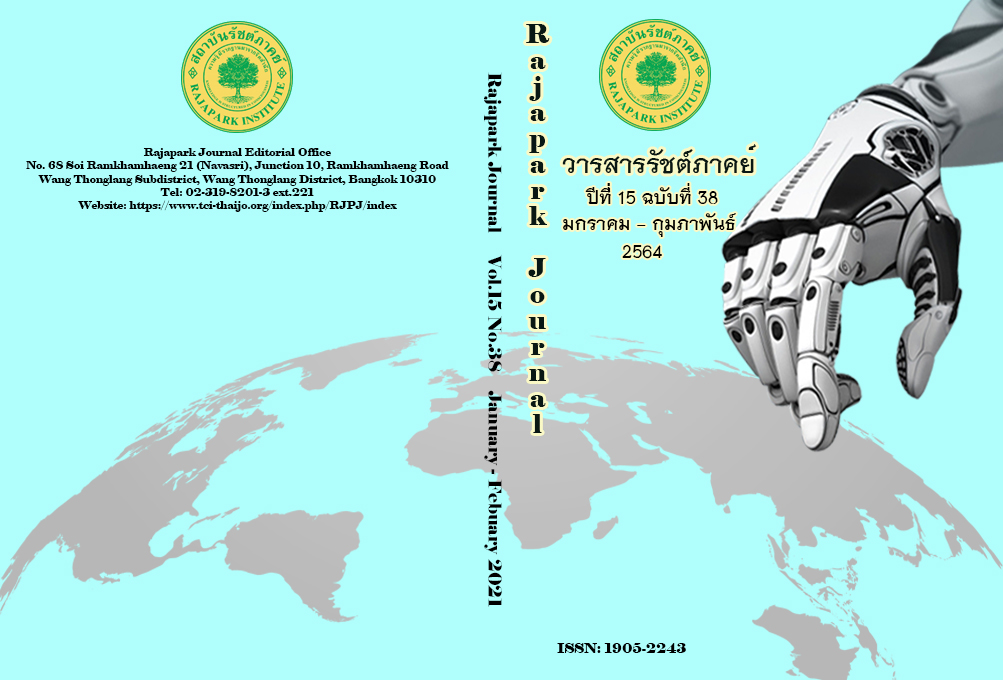Decision to use Open Learning Service Thai MOOC
Main Article Content
Abstract
The objectives of this research are 1) to study opinions on the Thai MOOC open online education management, 2) to study opinions on the quality of the Thai MOOC open electronic service system and 3) to study the decision to use the online learning service in the Thai MOOC open system using Research using quantitative research. The population used in the research is 260 people. The tool used in the questionnaire. The data were analyzed by using computer software to find the frequency, percentage, mean, standard deviation, Pearson correlation coefficient and multiple regression equations. The research results were found that Online education management factors include technology adoption. Ease of use and the ease of use of the system and the quality of electronic services, namely reliability Meeting the needs access to service and privacy had a statistically significant effect on the decision to use the learning service in the Thai MOOC system at the level .05
Article Details
Views and opinions appearing in the Journal it is the responsibility of the author of the article, and does not constitute the view and responsibility of the editorial team.
References
Ajzen, I. (1985). From Intention to Actions: A Theory of Planned Behavior. In: Kuhl, J. et al. (eds.), Action control, Springer Series in Social Psychology, 11-39.
Barry, E. V. (1986). Moral issues in business. Belmont, California: Wadsworth.
Davis, F. D., Bagozzi, R., & Warshaw, P. R. (1989). User Acceptance of Computer Technology: A Comparision of Two Theoretical Models. Management Science, 35(8), 982-1003.
ILLINOIS, University of Illinois at Urbana-Champaign. (2013). Guide to Massive Open Online Courses (MOOCs) at Illinois. Retrieved from http://moocs.illinois.edu/docs/moocs-at-illinois-guide.pdf
Jitlung, J. (2019). Strategy to upgrade the achievement of Ordinary National Educational Test (O-Net) of Wat Chaeng Duan Innovation School “watjang Model”. Academic Journal, 22(3), 57-63.
Kepka, M. (2014). MOOC Creative Guideline. Northwestern University.
National Science and Technology Development Agency (NSTDA). (2015). Development of Educational Material for MOOCs from 6 Best practices. Retrieved from www.nstda.or.th/nstda-knowledge/289-ict/20736-moocs-6-best-practices
Palayeam, P., & Srinuan, C. (2018). Intention to Use Promptpay Financial Service of Consumers in Bangkok. Panyapiwat Journal, 10(3), 154-163.
Parasuraman, A., Zeithaml, V. A., & Barry, L. L. (1985). A Conceptual Model of Service Quality and Its Implications for Future Research. The Journal of Marketing, 49(4), 41-50.
Parasuraman, A., Zeithaml, V. A., & Berry, L. L. (1988). SERVQUAL: A multiple-item scale for measuring consumer perceptions of service quality. The Journal of marketing, 64(1), 12-40.
Thailand Cyber University, Office of the Higher Education Commission. (2017). Lifelong Learning Space: Thai MOOC (Thailand Massive Open Online Course). Retrieved from https://thaimooc.org/
Theerasopee, N., & Ottamakorn, C. (2019). Influence Factors in The Behavioral Intention of the use of the Web Portal Thai MOOC Educational System. Silapakorn University Journal, 39(5), 95-116.
Tinnawas, N., & Tharnmetar, T. (2016) The Study of Massive Open Online Course Model for Thai Higher Education. Veridian E-Journal, Silapakorn University, 9(3), 1463-1479.
Zikmund, W. G., Babin, B. J., Carr, J. C., & Griffin, M. (2013). Business research methods (9th ed.). Mason, Ohio: South-Western.


